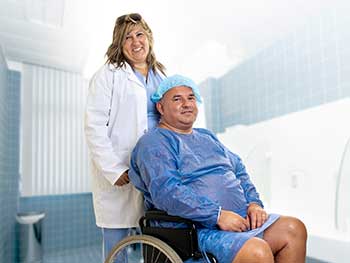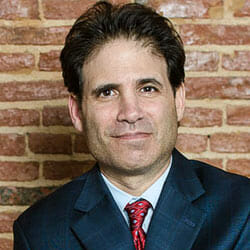Gastric Bypass Surgery: Results Are Not Without Risks
The U.S. has an obesity problem: More than 30 percent of adults, or roughly 78 million people, are currently considered obese. That’s according to a 2015 report, “The State of Obesity: Better Policies for a Healthier America.” On top of that, about 17 percent of children are considered obese, which is usually defined as having a body mass index (BMI) of 30 or higher. What is even worse is that the numbers are growing, and have been for a while.
Maryland’s ranking is smack dab in the middle—we are 26th out of 50 states and the District of Columbia—with 29.6 percent of adults defined as obese. The problem is that the number is up a full ten percent since
2000 and nine percent since 1990, when the obesity rate was only a third of what it is today, at 10.8 percent. Because of the increase in obesity, the occurrence of diabetes, heart disease, hypertension, and certain related cancers are all significantly higher. The money we spend these days on medical problems and diseases because of obesity is ever-increasing, too. So, is it any wonder that the number of gastric bypass surgeries is growing as well?
Surgical methods have improved over the years. In the early 1990s, around 16,000 people were having bariatric (weight loss) surgery done. Fewer than 15 years later, by 2004, that number had increased over eightfold to nearly 136,000. All indications are that the number of surgeries continues to rise along with the number of obese people.
But just because the risks have dropped since the early days of bariatric surgery—the first procedure was done in the 1960s—doesn’t mean that the risks are insignificant. You still have a roughly one in 200 to 300 chance of dying during surgery or within 30 days of surgery. Obviously, the healthier you are apart from your weight, the greater the likelihood of a positive surgical outcome. And your chances of dying from obesity can be greater than the risks of the surgery, making it worth the gamble.
But the world is not a perfect place, and doctors are not all equally competent or skilled. Things do go wrong. Stuff happens, and sometimes stuff happens because of negligence, which is considered legal grounds for a medical malpractice suit.
The Gastric Bypass Procedure Revealed
 When you have gastric bypass surgery done, it means that only a small part of your stomach will be able to receive and process food. Approximately 90 percent of your stomach will be “bypassed,” limiting the amount of food you can take in. Because less food is ingested, the patient generally begins to lose weight, although exercise is often prescribed by the doctor to keep the weight loss moving along.
When you have gastric bypass surgery done, it means that only a small part of your stomach will be able to receive and process food. Approximately 90 percent of your stomach will be “bypassed,” limiting the amount of food you can take in. Because less food is ingested, the patient generally begins to lose weight, although exercise is often prescribed by the doctor to keep the weight loss moving along.
After sectioning off the stomach so that a small pouch is available for food, a portion of the small intestine must be directly connected to it so that the food moves through your system. The reconfiguration of your digestive system often means your body absorbs fewer calories, so that also contributes to weight loss.
An often-used gastric bypass surgical technique is the Roux-en-Y laparoscopic gastric bypass. (The difference among all gastric bypass surgeries involves how the small intestine is reattached.) Although it is popular because it requires a shorter stay in the hospital, with a shorter recovery time and less pain, the Roux-en-Y is considered more difficult to perform well, and has a slightly higher mortality rate.
Complications Arising from Gastric Bypass Surgery
Any surgery is hazardous to some extent, and having other conditions such as diabetes, as well as carrying an unhealthy amount of weight, worsens the chances of a good outcome. The most common complications of gastric bypass surgery are:
- Deep vein thrombosis/pulmonary embolism. The most common cause of death for gastric bypass patients is pulmonary embolism.
- Leaks, meaning that the connection between the new stomach pouch and the small intestine doesn’t seal the way it should. Around four percent of patients develop a leak, which often needs additional surgery to fix.
- Strictures, which are caused by scar tissue that narrows the attachment area between the stomach and the bowel. Four to five percent of patients develop strictures; they are treated using an outpatient procedure known as endoscopic dilation.
- Internal hernia, meaning that the bowel twists and blocks itself. Four to five percent of patients develop bowel twisting, and surgery is required to repair it.
When Surgical Problems Become Medical Malpractice
Medical malpractice cases involving gastric bypass surgery are overwhelmingly due to post-operative care that falls short of the mark because of a failure to diagnose one of the following:
- This is the biggest reason that medical malpractice cases are brought for gastric bypasses. Not recognizing soon enough that a patient is suffering from a leak may be considered negligence.
- Deep vein thrombosis or pulmonary embolism. These are both deadly complications, and a failure to diagnose in a timely manner may be considered negligence.
- Infection or abscess, sometimes caused by intestinal twisting, which can lead to gangrene. Not paying sufficient attention to patient complaints of pain in order to arrive at the correct diagnosis quickly may be considered negligence.
Medical malpractice cases can vary, but here are two that involved gastric bypass surgery. In the first case, a Chicago woman received over $14 million after suffering brain damage because she was administered the wrong blood thinner. In the second one, the family of a deceased St. Louis area patient received a settlement for $3.5 million. In this case, no further details can be revealed for confidentiality reasons.
In a number of malpractice cases, a common theme is the inexperience of the surgeon, as the rate of complications can be dramatically higher. For example, if the surgeon has done fewer than than 20 gastric bypasses, your odds of dying within 30 days of the procedure are almost five times higher.
Another common trigger for a gastric bypass malpractice case is doing surgery on a candidate who isn’t obese enough. Generally, patients need to have a BMI of at least 35 to 40, depending on the urgency of other health problems that are worsened by the obesity.
If you are considering having gastric bypass surgery done, be sure to check online court dockets for legal complaints against your surgeon, as well as the Maryland Board of Physicians licensing web site.
Let Down by Modern Medicine? Call Us For Help
An experienced Baltimore medical malpractice attorney such as Maryland attorney Steven H. Heisler will be able to listen to the facts of your case, conduct a thorough investigation, and help you devise a legal strategy for obtaining compensation for your injuries. Due to the involvement of insurance companies and defendants who can afford a strong legal team, it’s a good idea to equip yourself with an attorney who has extensive experience when it comes to medical malpractice. Not every medical malpractice claim will hold up in court. However, the only way to determine this is through a thorough case review.
If you or a loved one has suffered as the result of what you believe to be medical malpractice, contact the law offices of The Injury Lawyer, Steven H. Heisler, today for a free initial consultation about whether you have a case at (410) 625-4878, or use our online contact form.

Attorney Steve Heisler
Steve Heisler decided in 1996 that he was going to focus his law practice exclusively on injury cases. Since then, he has been representing injured people against insurance companies, disreputable medical practitioners and Big Pharma, and doing it with compassion, honesty and level-headed rationality. [ Attorney Bio ]

